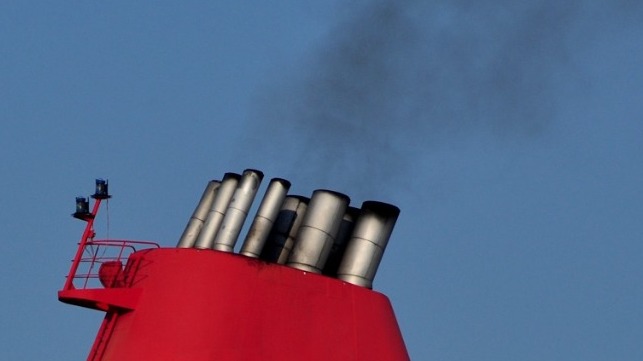EU Parliament Advances Strengthened GHG Regulations for Shipping

The European Parliament's Committee on the Environment, Public Health and Food Safety (ENVI) has approved the European Union's plans to regulate carbon dioxide from shipping, with significant changes. If its amended bill is approved without further modification, virtually all voyages to and from European ports would eventually be covered by the regulation, and the cost of EU carbon pricing would be passed on to the charterer.
The committee's version of the regulation would cover 100 percent of emissions from intra-EU routes and 50 percent of international routes beginning in 2024. From 2027 on, emissions from all trips would be covered 100 percent (with some exceptions).
In a major change, the committee also specified that all greenhouse gas emissions should be covered, including methane, a significant consideration for LNG-fueled ships. The original draft only covered CO2 and excluded methane, which is a far more potent greenhouse gas.
The new draft also specifies that 75 percent of the revenues generated from the auctioning of maritime allowances should be put into an Ocean Fund to support the green transition in the maritime sector - a mission-critical demand from the shipping industry. It also requires that the cost of allowances must be passed on to the commercial operator (charterer) through contractual clauses, satisfying a major demand from non-operating shipowners who do not have direct control over fuel consumption.
The draft received a warm welcome from environmental advocates. "The ENVI Committee has proposed a climate-ambitious carbon market that works for industry and for the climate," said Transport & Environment's shipping officer, Jacob Armstrong. "The European Parliament Plenary must now rubber stamp this proposal so that we can start to take advantage of the ETS revenues and begin shipping’s long-delayed voyage towards decarbonization."
The European Community Shipowners' Associations (ECSA) said that while it would prefer to see action at IMO, it welcomes the European Parliament's willingness to consider input from the shipping industry.
"A lot of work still needs to be done but the outcome of the vote today is a strong signal that the European policy-makers are keen to listen to the proposals of the shipping sector. The earmarking of the revenues is essential to finance R&D projects and to bridge the price gap between cleaner and conventional fuels," said Sotiris Raptis, ECSA’s Secretary-General.
The World Shipping Council - the global industry association for ocean carriers - called for changes to the package. During the final stage of negotiations between the EU Parliament, Commission and Council, WSC asked EU regulators to scale back the geographic coverage of the measure to intra-EU voyages only. It also asked for them to incorporate all well-to-wake, lifecycle emissions from shipping - not just tank-to-wake emissions occurring aboard the ship.
"The lack of a life-cycle emissions approach risks diverting investments away from solutions that require low-GHG fuel production and supply to enable innovative technologies onboard," said WCS in a statement. "Moreover, an EU ETS that ignores life-cycle accounting may even reward the production of fuels (in Europe or abroad) with a very heavy well to tank footprint, basically increasing GHG emissions."
The proposal could still be revised in negotiations between the EU Council, Parliament and Commission. A parliamentary vote is scheduled for early June, about the same time that the IMO Marine Environment Protection Committee meets in London to consider its greenhouse gas strategy.
